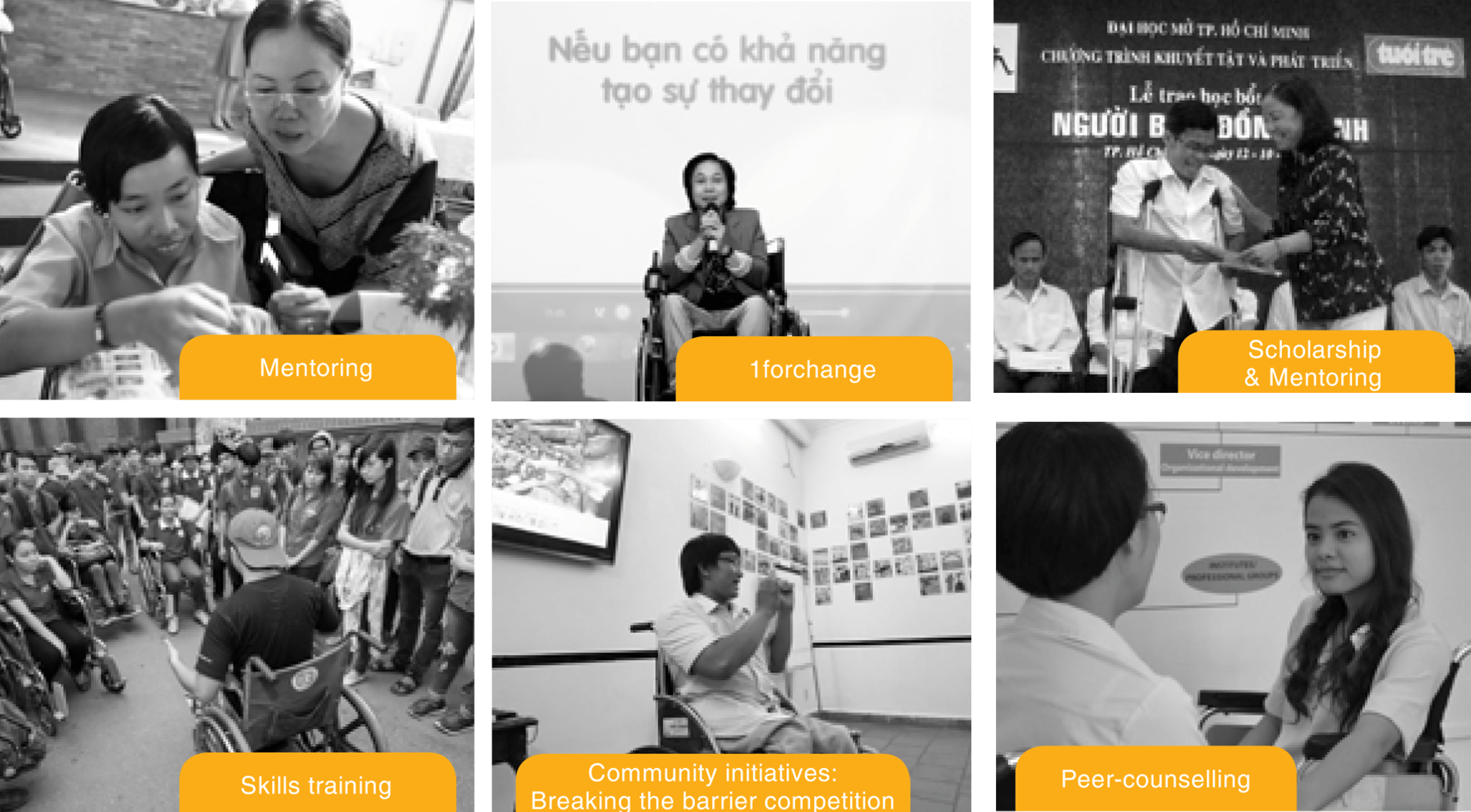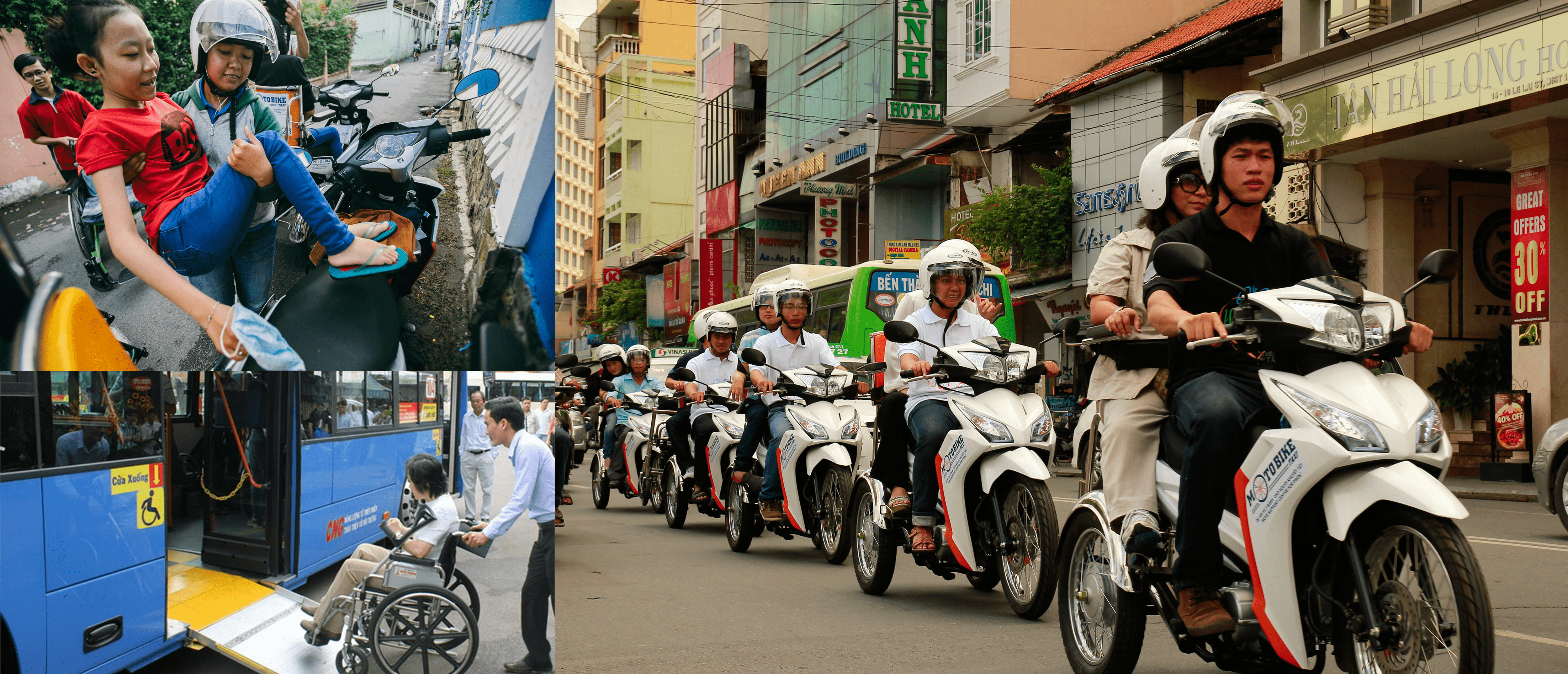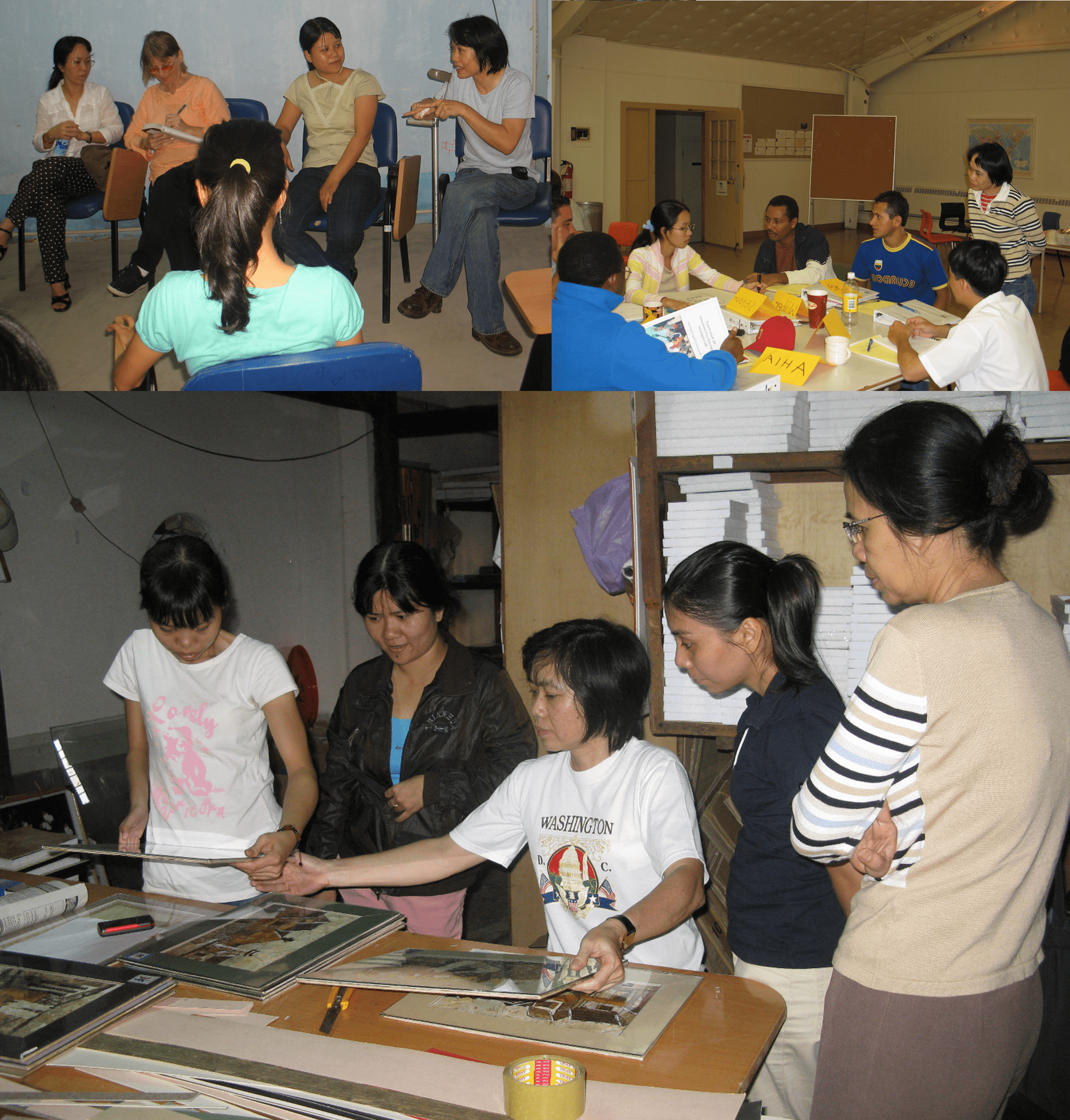Vietnam is one of the fastest rising economies in Southeast Asia. As in other newly-emergent economies, social services have sadly not kept pace with impressive economic growth. A social concern that is inadequately addressed involves the rights of persons with disabilities (PWDs). In recent years, government has enacted legislation for PWD protection and support services but the implementation gap remains huge for the estimated 13 million PWDs in the country. In such a situation, the action of citizens is vital, and where civil society is weak, as in Vietnam, the leadership of gifted, dedicated individuals is especially crucial.
VO THI HOANG YEN, born and raised in a remote village in Vietnam’s Dong Nai province, contracted polio when she was two-and-a-half years old. In many other cases, particularly in the rural areas, this condition would have consigned her to a life of dependence. But with a supportive family and her own courage and will, she succeeded in getting an education. Braving discrimination and the constraints of her disability, she earned college degrees at Ho Chi Minh University, and a scholarship brought her to the University of Kansas, where she obtained a master’s degree in human development in 2004. Turning her back on opportunities for a comfortable life in the US, YEN returned to Vietnam.
She had been exposed to the issue and practice of PWD rights in the US, and experienced the stark contrast in Vietnam: the barriers to PWD mobility, access, and employment; the cultural bias that fosters passivity and dependence; the lack of public awareness of PWD needs and rights. Despite her qualifications, her first job application was turned down because of her condition. Undaunted, YEN immediately set to work.
In 2005, with three other PWDs, she founded Disability Research and Capacity Development (DRD), a non-profit organization based in Ho Chi Minh City whose guiding vision was to create “an equal and non-discriminatory society” for PWDs. DRD embarked on public awareness raising activities; livelihood and life-skills training for PWDs; employment and job placement; and diverse other initiatives. Raising funds from international organizations, proactively working with government and the private sector, DRD systematically established its presence as the leading, most innovative PWD advocacy and support group in Vietnam.
Over the past thirteen years, DRD has directly assisted some 15,000 PWDs with skills and capacity building activities, scholarships, job placements, donations of assistive devices and computers, and, using social media, a website on laws for the disabled and a digital map showing PWD-accessible public infrastructure. DRD’s innovativeness was showcased in a pilot “motorbike taxi service,” with a hotline for free transportation for PWDs on specially-designed motorbikes. The project became so popular that DRD could not meet the huge demand. Moreover, DRD has worked with government and the business sector in crafting PWD-related policies and promoting PWD-friendly environments, as in buildings and transportation.
YEN is the quintessential achiever. Confident, hardworking, and articulate, she teaches at Ho Chi Minh Open University and has recently completed her doctorate studies in social work from La Trobe University in Australia, continuing to direct DRD even while doing her studies. It is YEN’s own drive to be able to live independently, and to see this in other PWDs as well, that is at the heart of her advocacy. Autonomy, inclusion, a sense of dignity, releasing and enhancing the capacities of the differently-abled—this is what she is about. Despite the continuing challenges and frustrating resource constraints, YEN remains inspired. She says, “PWDs write or call me, thanking me for helping them change their lives… This is what drives me to continue.”
In electing VO THI HOANG YEN to receive the 2018 Ramon Magsaysay Award, the board of trustees recognizes her dauntless spirit and prodigious energy in rising above her condition; her creative, charismatic leadership in the sustained campaign to break down physical and mental barriers that have marginalized PWDs in Vietnam; and for being a shining, inspirational model for the young in her country and elsewhere in the world.





















